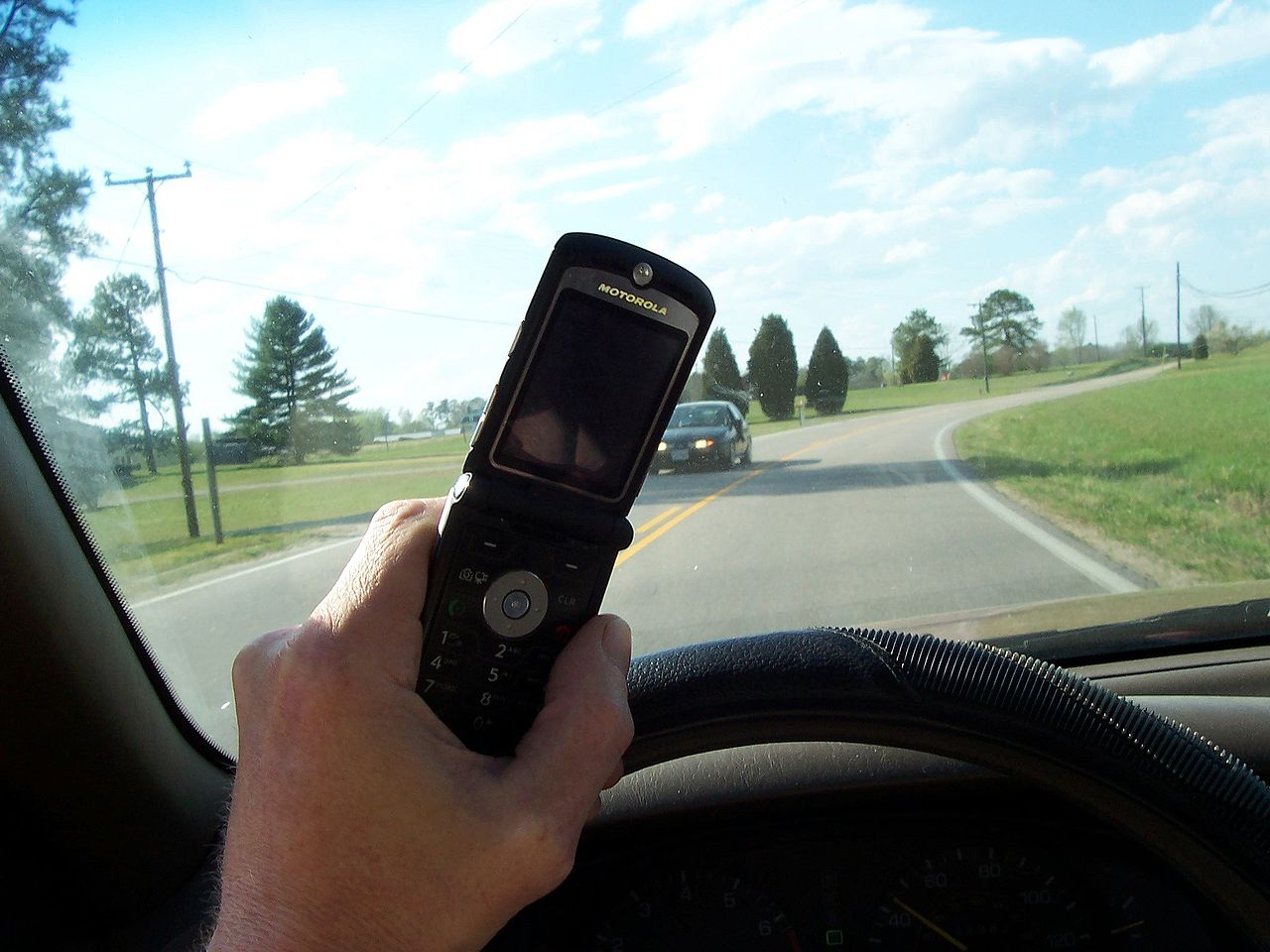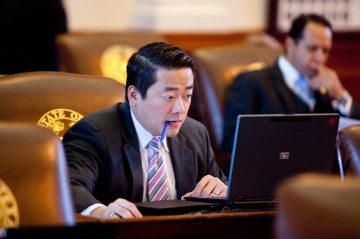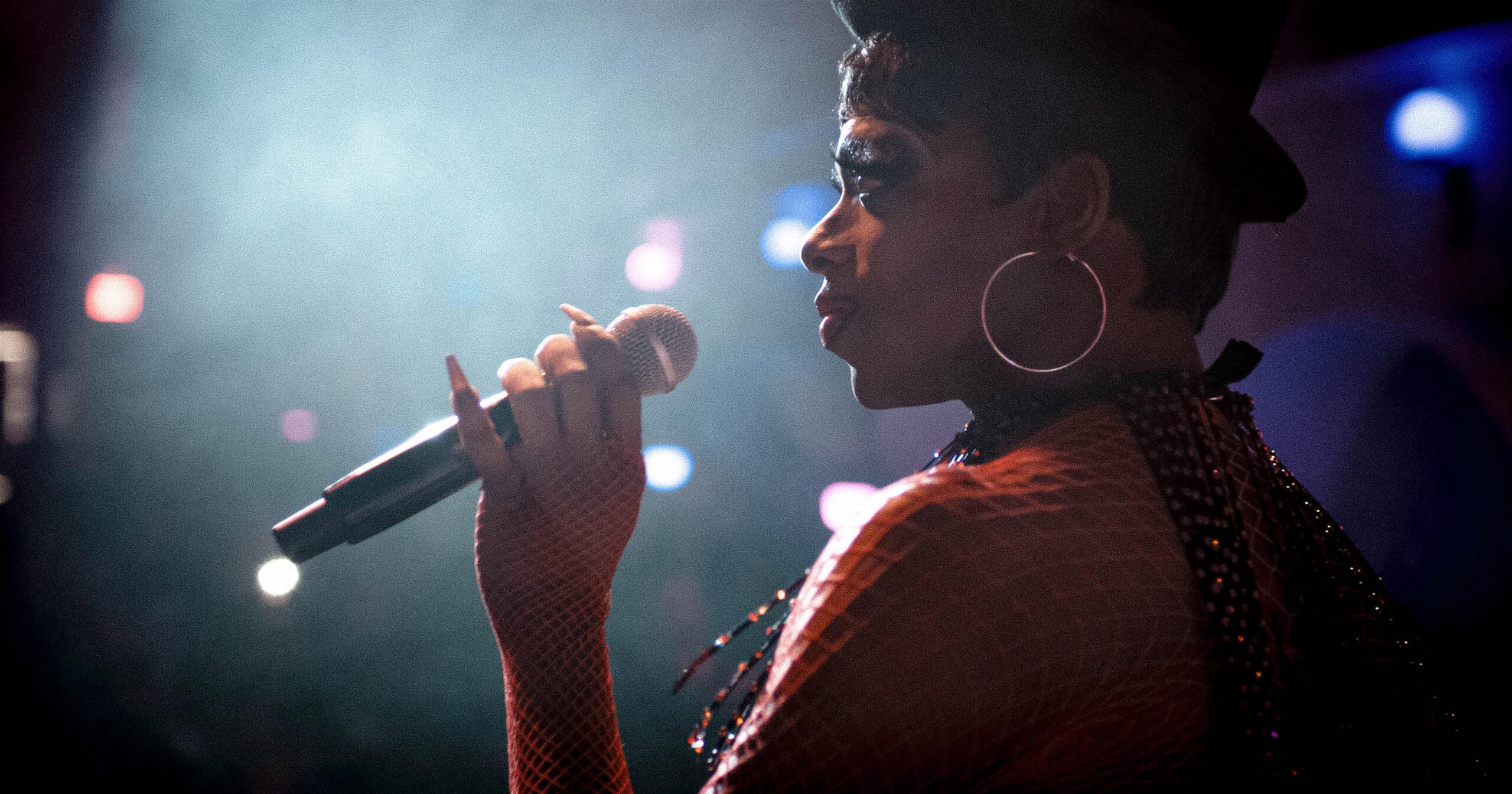
Third Time the Charm? Texas House Passes Texting-While-Driving Ban

Above: House Bill 80, by state Rep. Tom Craddick (R-Midland), would make texting while driving a misdemeanor punishable by a fine of up to $99 for the first offense and $200 for subsequent violations.
“Text and drive? Pay a fine.” That may be a warning sign seen around Texas soon if a texting-while-driving ban approved by the House on Thursday makes it into law.
Lawmakers voted 104-39 for House Bill 80, by state Rep. Tom Craddick (R-Midland), after debate over whether it would lead to unnecessary police stops and put undue burden on innocent drivers to prove that they were not texting.
As approved, the bill would make texting while driving a misdemeanor punishable by a fine of up to $99 for the first offense and $200 for subsequent violations.
Rep. Eddie Lucio III (D-Brownsville), a co-author of the bill, said he hopes the ban will be an effective deterrent.
“A large majority of distractive driving is defined as the use of cellphones,” Lucio said. “Text messaging in particular takes drivers’ eyes off the road, in order to read, type and message. … I hope by creating a fine and creating an offense, even if it’s a Class C citation versus an actual criminal jail type of offense, will act as a deterrent and change people’s behavior. That’s my hope.”
If signed into law, Texas would join 45 other states that have banned all drivers from texting while driving. Dozens of Texas cities also have passed texting-while-driving bans.
Rep. Gene Wu (D-Houston) said a statewide Texas law is overdue.
“When we started two sessions ago, almost no states had passed this type of law,” Wu said. “By now, a third session trying to pass this law, 44 to 45 states around the nation have already passed some type of legislation banning texting while driving, and that’s not a coincidence. The reason is people that understand this issue know how dangerous texting while driving is.”
The National Highway Traffic Safety Administration reported that in 2012 driver distraction was the cause of 18 percent of all fatal crashes, with 3,328 people killed. Another 421,000 people were injured.
The Legislature passed texting-while-driving bans in 2011 and 2013, only to see them vetoed by Gov. Rick Perry.
Wu said he is hopeful that with a new governor in place things may take a different turn this session.

“We are hoping that Gov. Greg Abbott is going to take a more pragmatic approach than Gov. Perry and think about the citizens of the state and sign the bill,” Wu said.
But the bill also raised concerns among many lawmakers over the potential for racial profiling and unnecessary police stops.
A proposal by Rep. Harold Dutton, Jr. (D-Houston) to require law enforcement agencies to report how many citations they issue and the race of the individuals ticketed narrowly failed.
Dutton said the legislation “creates too much subjectivity on the part of the police officer” about who gets stopped and ticketed.
“I think it will lead to racial profiling,” he said.
Wu told the Observer that focusing on racial profiling for just one type of offense is too narrow.
“Let’s look at all crime,” he said. “Let’s look at all arrests. Let’s look at all types of citations. Let’s not narrow it down to just one thing. I think if we narrow it down to just one thing we might be falsely placated into believing there’s no problem.”
Lucio also said he is hopeful about the bill and hopes the governor will give it a chance this session.
“I am optimistic, without any doubt in my mind that this bill is necessary, so I’ll keep working until one day we achieve this goal,” Lucio said.
The Senate companion, SB 25 by Sen. Judith Zaffirini (D-Laredo), has yet to get a hearing.


